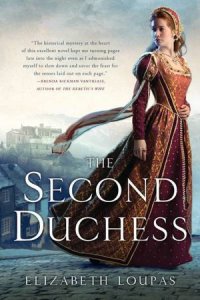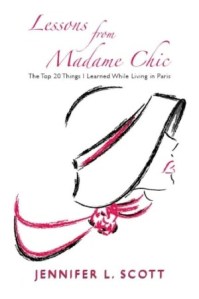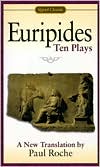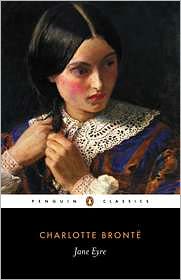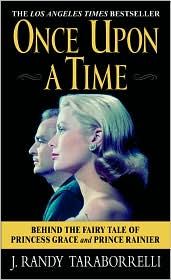 When thinking of a Renaissance man or woman we often think of someone well-read, conversant in multiple languages, familiar with the arts, someone who is the equivalent of a mental gymnast. This is true; however in my opinion to be a true Renaissance person, you need to branch into the physical. Although we may focus on the mental, a truly rounded Renaissance person will also have a healthy degree of physical fitness. After all what’s the point of having worked so hard on training your mind when your body won’t obey you or perhaps has fallen into such a state of disrepair that it actually threatens your health?
When thinking of a Renaissance man or woman we often think of someone well-read, conversant in multiple languages, familiar with the arts, someone who is the equivalent of a mental gymnast. This is true; however in my opinion to be a true Renaissance person, you need to branch into the physical. Although we may focus on the mental, a truly rounded Renaissance person will also have a healthy degree of physical fitness. After all what’s the point of having worked so hard on training your mind when your body won’t obey you or perhaps has fallen into such a state of disrepair that it actually threatens your health?
It was with this spirit that I finally tackled a long held goal of mine. Running. For years, I’ve always longed to have the ability to go for a good half-hour run, but have been unable to. Yes I could walk at a brisk pace easily for hours, but start me jogging and two minutes in I’m gasping for breath. I would watch those lithe and lean runners on early weekend mornings with a sense of envy and wistfulness. I wanted to join their ranks but doubted I ever could. Finally after a very busy and somewhat fattening summer I decided to take action.
Enter the Couch to 5k program. Perhaps you’ve heard of it, maybe not, but it’s over the years acquired a quite a fan base and I’ve joined them. The premise is simple; 9 weeks to take you from couch to running 30 minutes straight. Does it work? Yes it does! I just completed it last week and am now proud to say that I can run 30 minutes without stopping at a comfortable jog.
How does it work? As you can see from the link provided, it slowly acclimatizes you to running through a series of intervals of running and walking. By the end of week five you’re already able to run 20 minutes straight, an amazing accomplishment in itself. Here are some tips I discovered doing the program that may help you should you want to embark on this program.
Run slower that you think you should. I learned this around week four. I began the program running at 5.0 on my treadmill, which was quite doable for the first few weeks. However when the longer intervals began they started to feel unbearable towards the end. At first I thought I should just force myself through it, but after reading comments made on C25K’s facebook page I realized I was running too fast. The goal of the program is building up time and endurance, speed comes later. Some commented on how they were running at speeds as low as 4.1 mph and then built up from there. So I did the same. I scaled back to 4.7 mph and noticed a tremendous difference. When running you should be able to breathe, for the majority of the time, through your nose and not be gasping through your mouth. If you can’t do that you’re probably going too fast. Slow down, build your speed up later.
Get the C25K app on your smart phone. This was an incredible help. I got an app on my android that was invaluable. It tells you when to run and walk, a great help in the early weeks when you’re doing your interval training. It allows you to focus on your workout and not the timer on the treadmill. Another enormous perk was that I could listen to my Pandora stations simultaneously, while my running app ran in the background. I also like that I could post to facebook my workouts, which added accountability. I knew people were watching my progress, so I was more motivated to complete my workouts.
Running does not get progressively harder the longer you run. This was a breakthrough I had after I did my first 8 minute run. I had always imagined that when running, at least in the beginning, the longer you ran the harder it would get, that minute 15 would feel worse that minute 5. Actually I’ve noticed that the level of difficulty plateaus around minute 4 or 5. After that you’re pretty much going to feel the same for the entire length of your run. Yes running is more intense than walking, but it’s not nearly as hard as I imagined it would be. It was a very reassuring discovery that running for 30 minutes wasn’t going to be a torturous test of my endurance. Of course this also hinges on your running at the correct pace, see above point.
Yes, you can run 20 minutes at week 5. This is the scariest of all the runs. Up to this point you’ve been doing intervals with the comforting knowledge that a walk is at the most 8 minutes away. Now you’re going to run 20 minutes straight and only 5 weeks into the program! Believe it or not, you can do it. Trust the training. Your body has been conditioned from the intervals and you can complete it.
Cover up the timer! Watching the clock will turn your workout into an agonizing drudge. I covered the clock up with a big sticky note or towel and let my app tell me when I was done running. I recommend you do the same.
If you can, run on a treadmill. A treadmill keeps your pace consistent, which you need when starting out. I find when I run outside I tend to start out too fast and end up winded half-way through my run. I plan on slowly transitioning from the treadmill to outdoor runs. Plus running inside is glorious when it’s summer in Texas.
Listen to what makes you move. I like to incorporate learning into my workouts on the treadmill with audio books. However when doing the C25K program this was not the time for them. I needed every ounce of pep and motivation I could get and for me that means a fast mix of pop music with more Lady Gaga in there than I care to admit. I currently working on my speed and when I’ve got to a point when I can really clock out mentally on my run and not need my music to get through it, then I’ll go back to my audio books. But when starting out you NEED music. Whatever it is that makes you move, pop, dance, hard rock, country, whatever put it on. Side note: I highly recommend the Pandora app for this. I like the element of surprise that keeps me from getting bored.
Next up on my healthy living goals list are pushups (10 full body ones), pull-ups and a healthy eating plan. I’ll keep you posted as I reach them.
So in conclusion, if I, a wimpy, breathless girl, can now run (albeit slowly!) for 30 minutes, anyone can. Get out there and move!
 The Histories by Herodotus. It’s epic. Epic in length, it took me over five months to read. Epic in scope, chronicling the Persian Empire from Cyrus to Xerxes and Greece’s rise to dominance. Epic in what Herodotus was trying to do, write the first history rooted in fact not myth.
The Histories by Herodotus. It’s epic. Epic in length, it took me over five months to read. Epic in scope, chronicling the Persian Empire from Cyrus to Xerxes and Greece’s rise to dominance. Epic in what Herodotus was trying to do, write the first history rooted in fact not myth.
